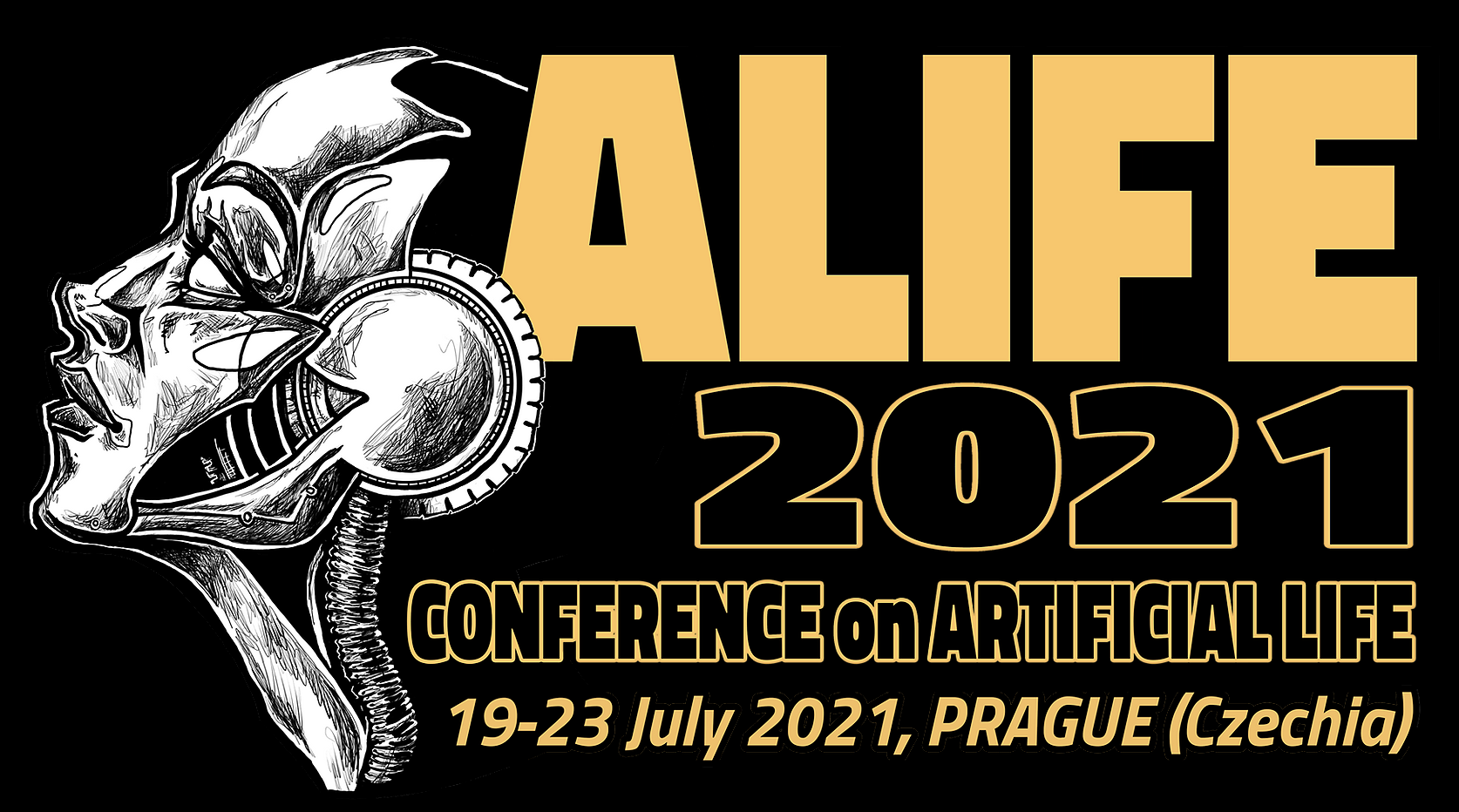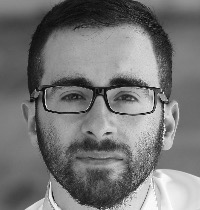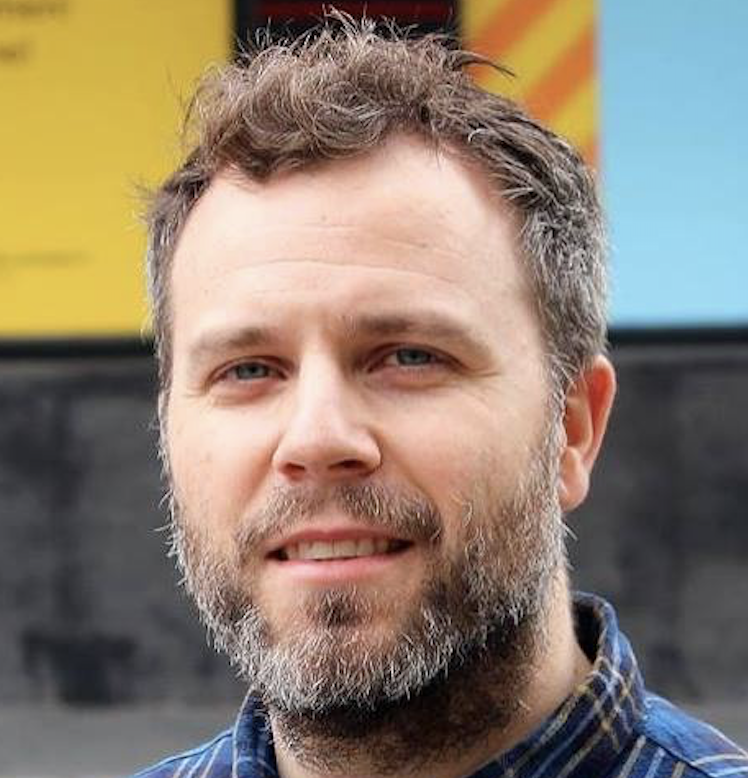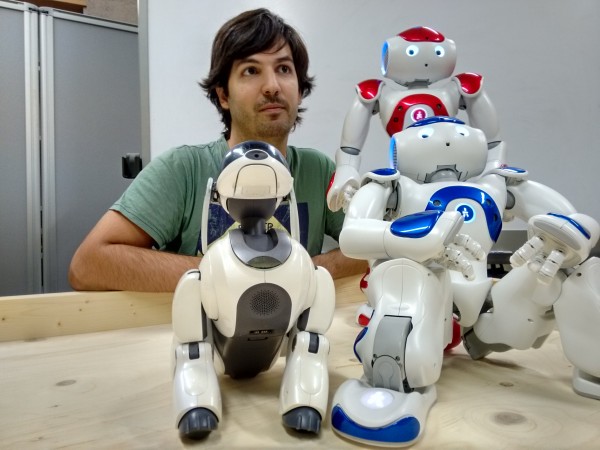
Special Session on
Bio-inspired Approaches for Modular Robotics
at ALIFE 2021, hybrid live/virtual event

Conference Dates: 19-23 July, 2021 - Prague, Czech Republic
Paper submission deadline: 07 March, 2021
Organizers
Giovanni Iacca, University of Trento, Italy
Eric Medvet, University of Trieste, Italy
Stefano Nichele, Oslo Metropolitan University, Norway
Scope and call for papers
Modularity concerns the organization of functions and structure of a system in components that exhibit some degree of independence and can be reorganized or reused. This property may bring robustness, adaptability, and scalability. In robotics, these features are desirable as they lead to reduced operational costs and broader applicability: robots with parts that can be easily replaced, e.g., upon malfunction and wear, can work longer; conversely, parts that can be reused for different purposes result in greater flexibility and sustainability. However, modularity also brings some challenges and opportunities in the design phase: the need for devising components that are, at the same time, atomically functional and work together when assembled calls for different design techniques. In these respects, bio-inspired methods appear promising. Living systems are intrinsically modular: creatures are composed of parts of different granularities that cooperate and communicate. Adaptation occurs along different time scales (evolution, development, and learning) and with different mechanisms. The way life achieved effectiveness and efficiency in many tasks that are relevant in robotics too (e.g., locomotion) suggests that bio-inspired methods might fully realize the potential of modularity in robots.
The scope of this special session is to receive high-quality contributions on topics related to bio-inspired approaches to modular robotics, ranging from theoretical works to innovative applications in the context of (but not limited to):
Keynote presentation
- Andres Faiņa (IT University, Copenhagen, Denmark)

Evolving Modular Robots: Challenges and Opportunities
The body of robots and their controllers need to be adapted to the task that they carry out. While it is possible to design and optimize free-form morphologies, its physical implementation consumes too many resources. In contrast, modular robots provide a feasible approach to design robotic morphologies that can be deployed in minutes, making them a suitable tool to implement virtual creatures. In this talk, I will tackle the main challenges to consider when evolving modular robots and mention some opportunities that these systems can provide.
Andres Faiņa (M) is an Assistant Professor and mechatronics researcher at the IT University of Copenhagen. He received a diploma in Mechanics and Electronic Engineering from the Universidade da Coruņa, Spain, in 2007 and received a PhD from the same University in 2011. He joined the IT University of Copenhagen in 2014 as postdoctoral researcher and he got an Assistant professorship in 2017. He has developed more than seven robotics systems (modular, underwater, educational or liquid handling robots) and he is the inventor of 4 patents. In 2015, he co-founded Flow Robotics, a startup that produces liquid handling robots and its robots are currently helping to prepare samples for COVID-19 diagnosis.
Submission Instructions
The submission intructions, manuscript templates, and author guidelines for the ALIFE 2021 conference are available here.
There are two options for submission: either full paper or extended abstract. Note that the format is exactly the same for both options. The difference resides in the number of pages and type of contents:
- Full Papers have an 8-page maximum length and should report on new, unpublished work
- Extended Abstracts are limited to a 2-page length and can report on previously published work.
Both papers and extended abstracts will be considered for oral or poster presentation, without distinction between full papers and extended abstracts.
Accepted papers and extended abstracts will be published by MIT Press as open-access electronic proceedings.
Important dates
Paper submission:
Author notification: 25 April 2021
Camera ready version: 16 May 2021
Contacts
Please feel free to contact us:
Giovanni Iacca: giovanni.iacca@unitn.it
Eric Medvet: emedvet@units.it
Stefano Nichele: stenic@oslomet.no
